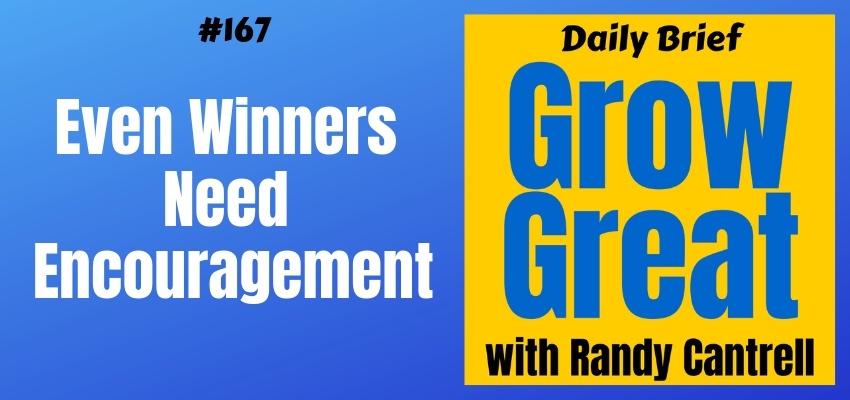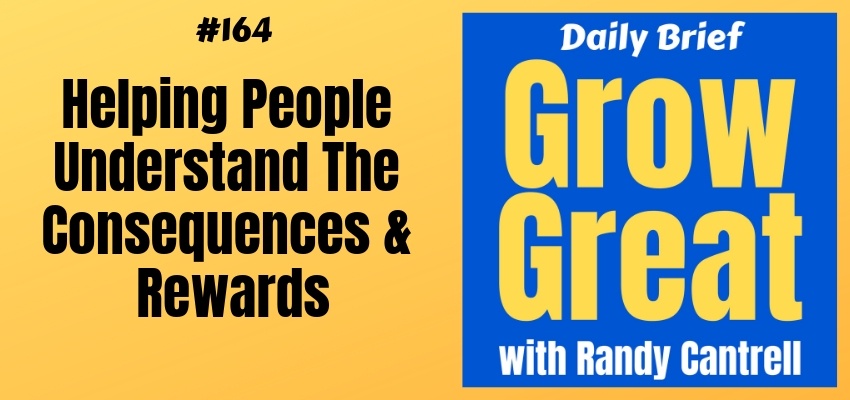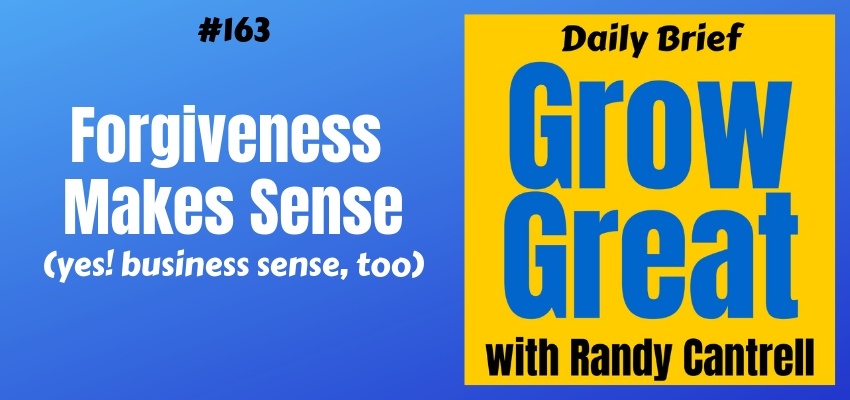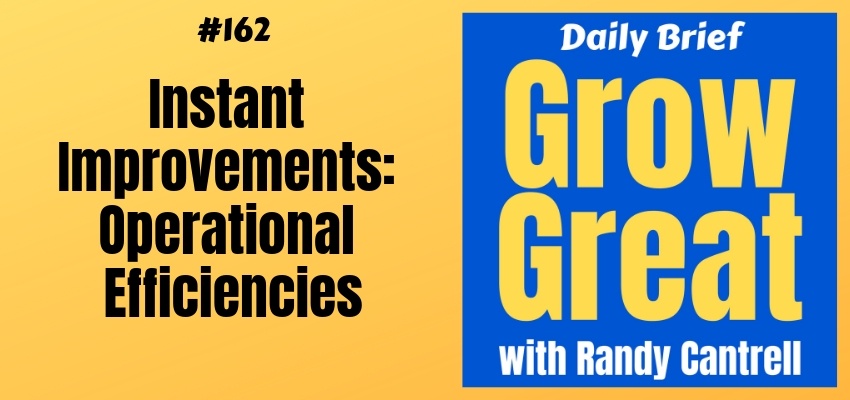Podcast: Play in new window | Download (Duration: 12:54 — 12.3MB)
Subscribe: Apple Podcasts | Spotify | | More
Two months down, ten to go. If you’re like me, you feel like 2019 is a rocket ride…going super fast.
Speaking of fast, instant is about as fast as you can get. Small business owners lean into their core strength – being nimble. It’s why so many giants have been disrupted by little guys who could move blindingly fast compared to the lumbering aircraft carrier speed of some gigantic competitor.
But instant? Well, that’s way beyond being nimble and highly maneuverable. Seems kinda ridiculous. But it’s not. Let me tell you a quick story to prove the point, then we’ll review the lessons we can all learn from it.
Gibson Brands, Inc., the world’s most iconic guitar brand, appointed their new leader – James “JC” Curleigh – as president and chief executive officer effective last November. JC joined Gibson from Levi Strauss & Co., where he served as president of Levi’s brand. Gibson also appointed a new Chief Merchant Officer, a new Chief Financial Officer, and a brand new c-level position, Chief Production Officer.
It’s important to understand the context behind these massive changes at the top. This Gawker article can tell you more, but the previous CEO had a terrible reputation and guitar players worldwide complained of the quality of the instruments. This 117-year-old company lost its way. Leadership let them – and their customers – down.
Enter JC and the new leadership team who took over the day the company emerged from bankruptcy. Right about now you’re thinking – well, of course things happened quickly. They had to. And you’d be right. But just because things need to happen quickly does not mean they do happen quickly. Look in the mirror at your company before you start throwing rocks at Gibson. 😉
JC immediately began to rally the troops first by listening. Who better to ask, “What’s wrong? What needs to be fixed? How do you suggest we fix this?” than the guy or gal at the top? That’s right. There is nobody better! Sadly, too few do it. Too few think of it as the noble work it truly is – to walk the factory floor (or whatever floors exist in their company) and engage in real conversations with the folks who do the work.
The National Association of Music Merchants (NAMM) show was fast approaching. January 24, 2019 was the opening date and Gibson staffers wanted to be there. That’s not even 90 days away from day 1 for this new leadership team, who was walking through a minefield of quality control issues and brand reputation erosion. JC told the team to prepare a plan for showcasing the new Gibson at NAMM. Within 4 days the team had improved products, ready to showcase, and had a full plan to blow the lid off the show. Now that the show is over, it was a grand success by nearly all accounts.
What happened in those 4 days and the 12 weeks or so prior to NAMM? JC and the team worked their tails off. That’s what happened. But first, JC asked questions and listened.
He made 3 fundamental improvements instantly that set Gibson on course to reclaim prior days of glory. First, the CEO learned that partners – the sellers of Gibson guitars – discovered quality control snafus by reporting that when they closely examined the products, the flaws were obvious. Why didn’t Gibson notice? Turns out when the CEO is curious enough to find out, he does. Gibson products were being built in a variety of places. Each factory floor had different lighting. None of it apparently good enough to produce the highest quality products. Immediately, new factory lighting – uniform lighting the same in every location – was installed.
“How hard was that?” you ask. So hard that it took the humility and curiosity of a great leader to ask. Then listen.
Next, the CEO discovered that each instrument was being handled about 74 times. That is, there were 74 opportunities for errors, mistakes, flaws to be introduced to each instrument. Why are we handling each instrument so many times…and then checking quality only at the end of the line? Good question, Chief.
Thus began more “what if” questions. What if we drastically reduce the number of touches? What if we make each person responsible for handing a PERFECT instrument to the next person?
Answer: It’ll make a quantum leap improvement in quality. So that’s what they did. They cut the number of steps, or touches, in half. They put accountability in place up and down the line. Each person was responsible for passing along a PERFECT instrument. Quality was dramatically improved…instantly.
Third, the CEO figured out that the company needed to wage a war on dust. The fit and finish is everything when you’re a premier brand. Gibson had lost their fit and finish advantage years earlier. It was time to get it back. The company had a history of building world-class instruments with world-class fit and finish. They simply needed to build the products according to templates that had been created years ago.
Manufacturing handmade instruments produce a lot of crap in the air. That crap impacts the fit and finish. The CEO led the charge to reduce or eliminate dust in the air so the instruments would emerge at the end of the line in the most pristine finish possible. It worked.
Three BIG improvements. Three BIG improvements that happened almost immediately because the person at the top – the CEO – started involving the people who do the work. It so happens that the people wanted to build great instruments. And they knew how. They needed a leader who understood the human potential and who believed in it. By nearly all accounts, Gibson found a CEO who “gets it.”
Step 1 – Act fast.
Yesterday is over. Gibson entered bankruptcy because the company had nearly impossible debt, bad products, incompetent leadership and a reputation that was going more south quickly. When the patient is near death, you have to act fast. I think we should all accept the challenge to act that way even if the patient (our company) isn’t near death. It can serve us well to behave with greater urgency as though our corporate life depended on it.
Step 2 – Do not figure it out by yourself.
Leverage the people who know. Be curious. Be humble enough to ask. JC came from Levi’s, not Fender. I constantly push companies to veer outside the norms for key hires. Not simply to be contrarian, but to amplify the curiosity and humility that can lead to dramatic growth. An experienced guitar maker CEO may have come into Gibson thinking she had all the answers. JC entered knowing he didn’t. There are BIG advantages to CEO naivete. Be willing to be humble, curious and naive so you can solicit the help you need.
Go to the source. The people who do the work likely have some of the best ideas and solutions. See them as the valuable resource they are. Ask them questions. Listen to their answers. Ask them more questions. Collaborate so together you can come up with better answers than you thought were even possible.
Step 3 – Do it.
All three of these decisions were implemented quickly. Why not? Don’t think they were simple, easy solutions, but they were all quickly implemented. That’s because the CEO was decisive. But another major component was because the people helped provide the solutions. That gave them strong ownership in making these happen. The team wanted to show off at NAMM. They arrived first each day and were the last to leave each night of the week-long show.
The “can do” spirit has to happen throughout the company. Great leaders know how to make everybody feel like their work matters. Because it does.
As we end a week but begin a new month I’ll leave you with a question to ask about your leadership and your company: Do you get it?
Do you enjoy this podcast? Am I providing you any value at all? If you’re a small business owner in the U.S. then I have a small favor to ask. Go check out ThePeerAdvantage.com. I’m working to form a small 7-member mastermind group of small business owners from around America to get together regularly online so we can help each other grow our business and our leadership. This isn’t a networking group. It’s not an advice-giving group either…at least not the way most groups work where people tell you what you should do. It’s a group designed to provide you with a safe space where you can speak in confidence and full honesty while we share our experiences and know how to help each other. Visit The Peer Advantage dot com and you can learn all the details. I’d love to speak with you about it.
Have a great weekend and let’s make March as strong as a stiff March wind.
Be well. Do good. Grow great!
RC





